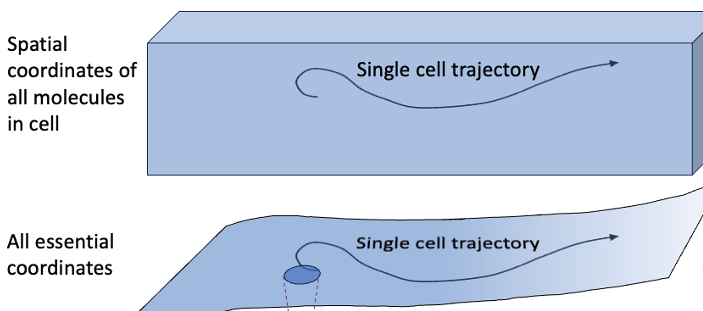“Proteins don’t know biology” is one of those things I’m overly fond of saying. Fortunately, it’s true, and it gives quantitative folks a foot in the door of the magical world of biology. And it’s not only proteins that are ignorant of their role in the life of a cell, the same goes for DNA, RNA, lipids, etc. None of these molecules knows anything. They can only follow physical laws.
Is this just a physicist’s arrogance along the lines of, “Chemistry is just a bunch of special cases, uninteresting consequences of quantum mechanics”? I hope not. To the contrary, you should try to see that cells employ basic physics, but of a different type than what we learned (most of us, anyway) in our physical sciences curricula. This cell biophysics is fascinating, not highly mathematical, and offers a way of understanding numerous phenomena in the cell, which are all ‘special cases’ … but special cases of what?
Continue reading


